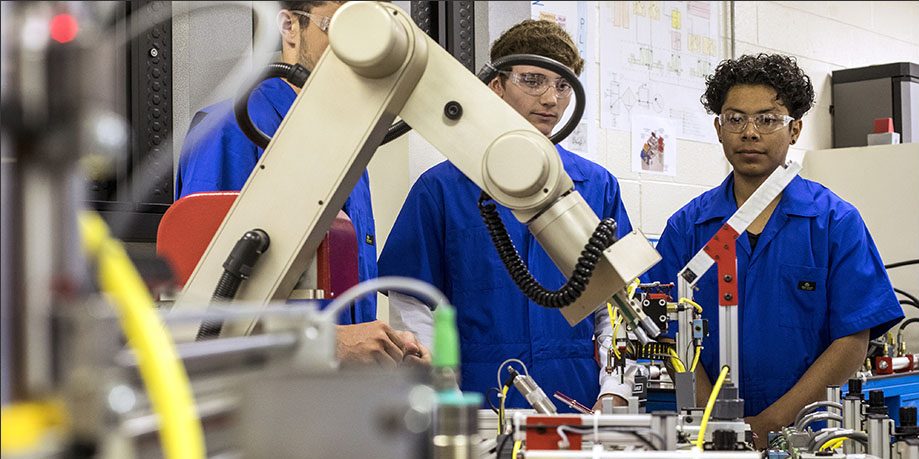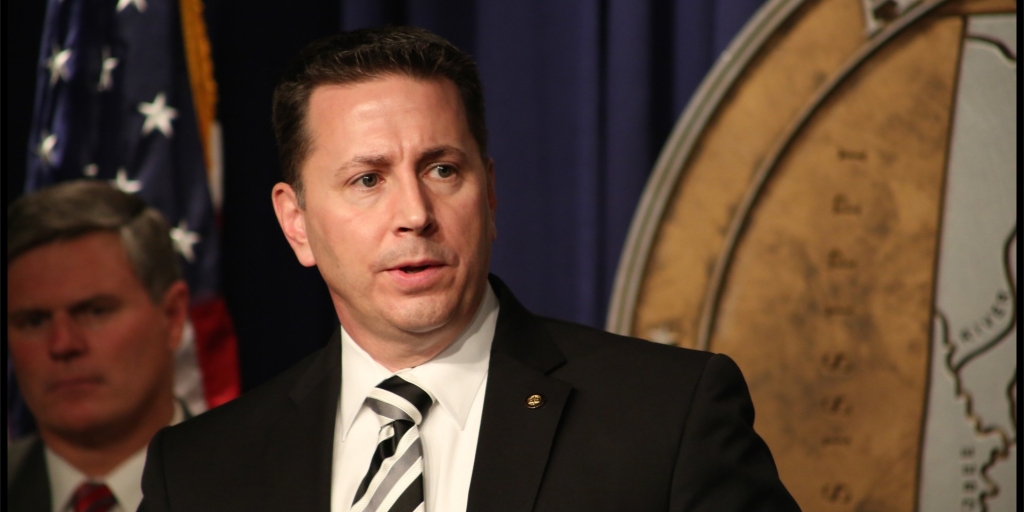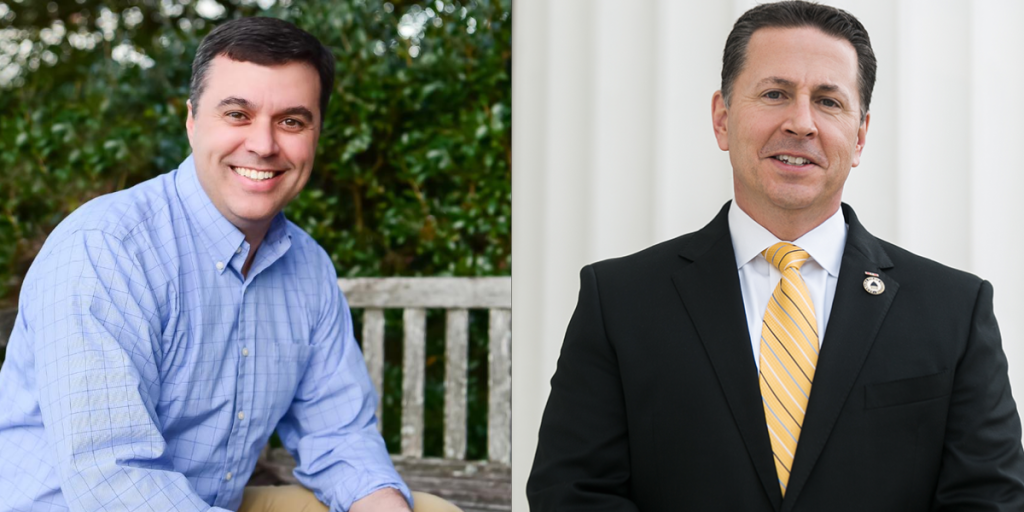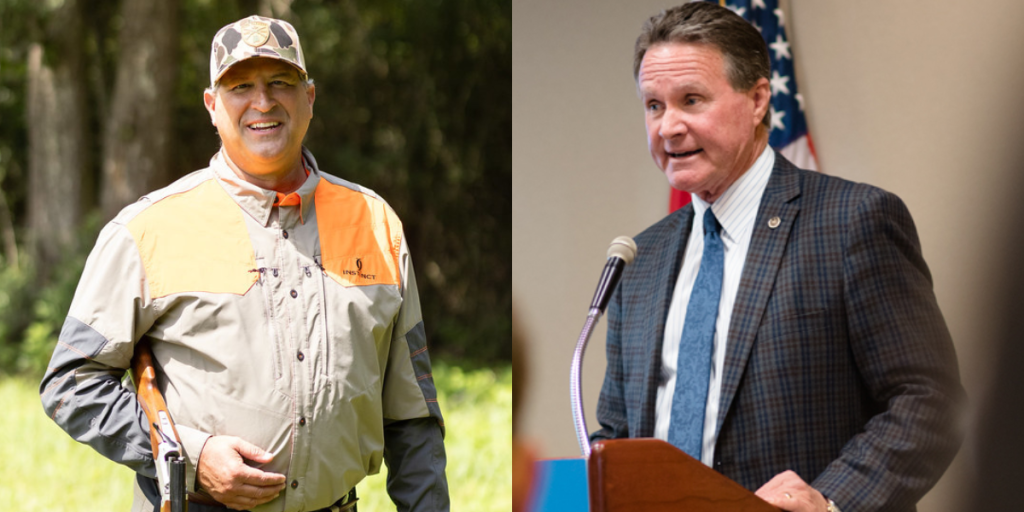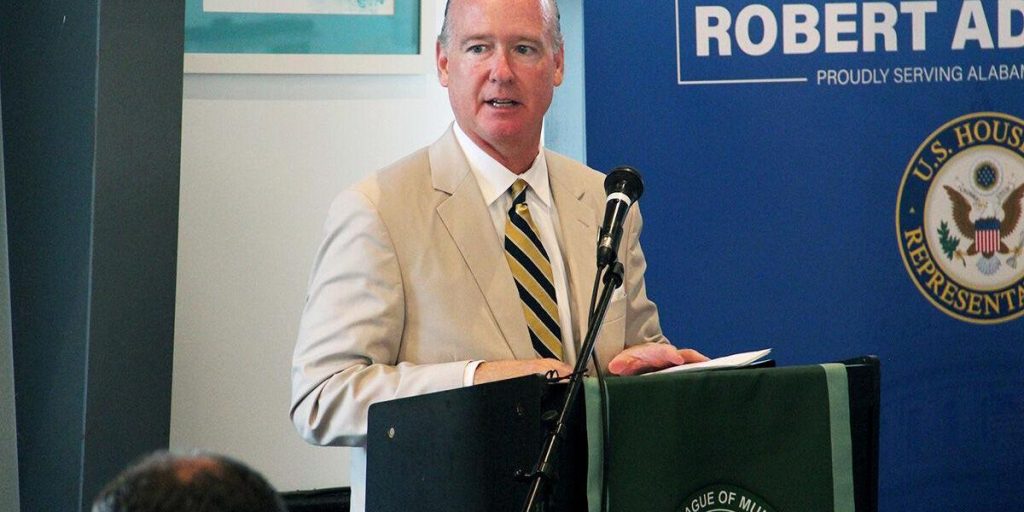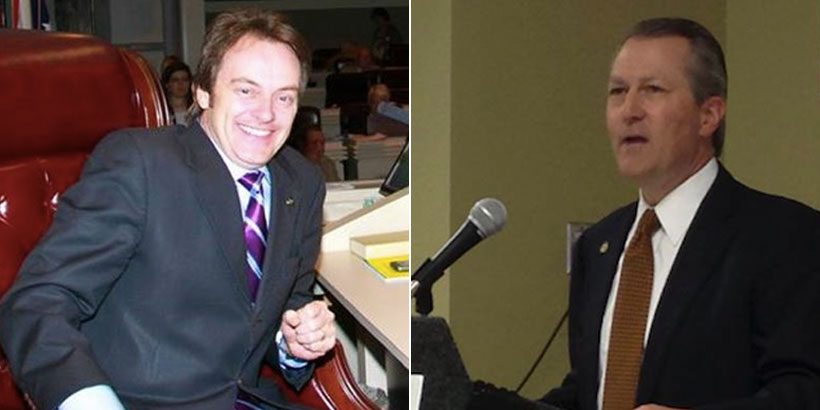
MONTGOMERY, Ala. — When Alabama House Speaker Mike Hubbard (R-Auburn) last week announced committee assignments for the upcoming legislative session, one lawmaker’s name was conspicuously missing from the chairmanship he has held since Republicans took over the legislature in 2010.
State Rep. Phil Williams (R-Huntsville) has been the only Republican to ever chair the Technology and Research Committee, but after questioning Hubbard’s ability to govern while facing trial on public corruption charges and challenging him for the Speaker’s gavel, Hubbard moved swiftly to strip him of his post.
Williams has now been replaced by Rep. Donnie Chesteen (R-Geneva).
Hubbard’s office released a statement saying “committee assignments are chosen based upon the skills and talents each member possesses,” but declined to comment on Williams’ removal specifically.
In a phone interview with Yellowhammer Monday morning, Williams said his background in technology and startups had made him a good fit for the Technology and Research Committee chairmanship.
“I started my career long ago when President Reagan called for a strategic defense initiative, which became Star Wars,” he explained. “I applied and got in and that was my entrance into the world contracting and testing. It was cutting edge stuff. After that I started a business doing test engineering work. It was very successful and we ended up selling it.
“Then I started another company doing wireless sensor networks and later sold it. Now I spend time mentoring small business startups. So I’ve been around startups and technology for 30-something years.”
The committee chairmanship was also important to Williams’ legislative district, which is home to many of the state’s tech firms, ranging from multi-billion dollar companies to bootstrapping startups. Williams’ successor, Rep. Chesteen, represents a rural Wiregrass-area district, but Williams says he is also qualified for the post.
“A lot of Huntsville people have contacted me with some concerns, saying things like, ‘Since when was Geneva a hub of technology?’” Said Williams. “There is certainly some disappointment. But I am very supportive of Donnie. I’ll do anything I can to help him. He’s a great guy and a good friend and I’ll go the extra mile for him.
“In fact, he is actually an expert on the technology we’ll be dealing with on the Committee in the coming months. It’s a bill called the Alabama Ahead Act. It will allow local school districts to spend money on the technology they need, whether it be wireless infrastructure, or iPads, or teacher training. Donnie’s been in the middle of that issue for several years now and he’ll have a lot of people, especially me, supporting him as we work through it this session.”
Yellowhammer spoke to several North Alabama technology executives and entrepreneurs Monday morning, each of whom had varying degrees of concern about Williams being removed from his post. They spoke freely on condition of anonymity.
“I can’t imagine it will hurt us that bad,” one said. “It is in our DNA up here to do innovative things up here and most of us could not care less who is on what legislative committee. The main thing we need is for the government to stay out of our way. That being said, it is always helpful to have a guy like Phil who actually has first-hand experience with what we’re doing and it is somewhat unseemly that politics would get in the way of that.”
Another tech leader said Williams’ removal reminded him of former U.S. House Speaker John Boehner removing Republicans from certain committees if they did not vote the way he wanted, or challenged his leadership.
“We were all worried there for a little while because (Congressman) Mo (Brooks) (R-AL5) is part of the Freedom Caucus and was giving Boehner fits,” he said. Brooks serves on the House Science, Space and Technology Committee.
“But he hung in there, didn’t get the ax like some of the others. (Senator) Shelby (R-Ala.) would have been able to make sure North Alabama was not completely left out in the cold, but it would have been tougher without an ally in the House. The state level is not as big of a deal, mainly because the NASA and Redstone and contractor money is coming out of D.C., not Montgomery.”
A third North Alabama resident Yellowhammer interviewed said for him it was less about Williams’ committee post, and more about North Alabama being singled out.
“I just can’t think of anything more asinine than taking out a petty political beef on the people,” he said. “That’s who stuff like this hurts. Not Representative Williams, his people.”
There is a small but vocal effort in the Alabama House to seek clarification on whether the state constitution calls for the Speaker to be elected every year, or only once every four years.
Section 51 of the Constitution says, in part, “the House of Representatives, at the beginning of each Regular Session, and at such other times as may be necessary, shall elect one of its members as Speaker.”
Amendment 57 of the Alabama Constitution discusses organizational sessions, which take place once every four years. It also says that during the organizational session “the House of Representatives shall elect one of its members as Speaker, to preside over its deliberations.” Although Amendment 57 does not strike anything from Section 51, it has created enough ambiguity that recent tradition has held that the Speaker is only elected once every four years.
Williams says this has allowed Hubbard and Speakers before him to amass a great deal of power.
“I would fully support getting some clarification on this issue,” he said. “Part 51 of the Constitution clearly says we should elect a Speaker every time we organize in a Regular Sessions. This week we should be electing a new Speaker. I’m not going to hold my breath because a lot of people don’t want the clarification. I haven’t met anybody yet who can tell me when the Legislature adopted a four-year program. It allows the Speaker, whoever it is, to accumulate a lot of power and money. It’ll take a Supreme Court decision to work it all out.
The legislature convenes for the 2016 Regular Legislative Session on Tuesday.





